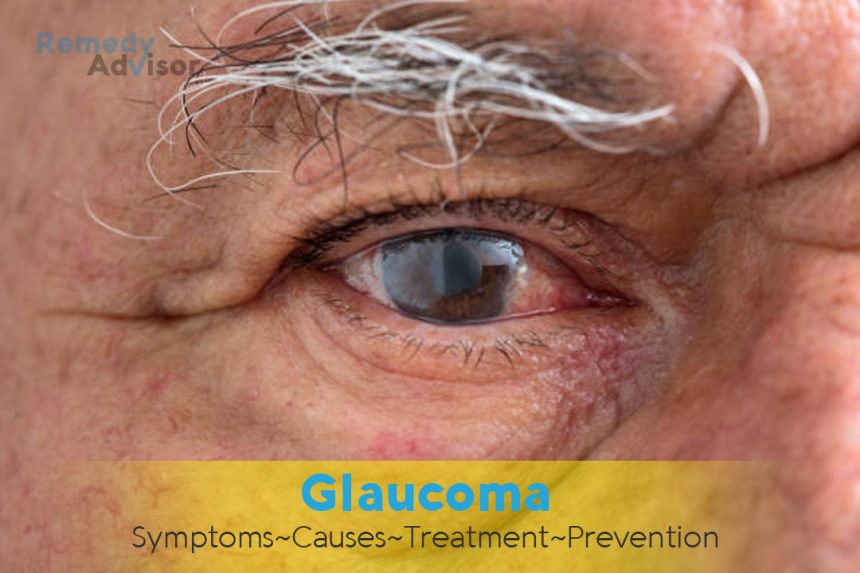What is it
Glaucoma is a disease of the eyes marked by increased pressure within the eyeball that can ultimately damage the optic nerve. It currently affects about two million Americans. Glaucoma cannot be prevented, but it can be treated and sometimes cured by surgery or laser techniques. If it is caught early, glaucoma need not result in blindness.
Open-angle glaucoma, the most common type (accounting for 90 percent of all cases), produces almost no symptoms in its early stages; its earliest sign is a painless increase in eyeball pressure, which can only be measured by an eye-care specialist. Side or peripheral vision may be affected, but only gradually.
A rarer type-closed-angle glaucoma typically manifests itself as a sudden attack. This form of glaucoma is sometimes mistaken for an upset stomach, since in addition to severe eye pain and reduced vision there may be nausea and vomiting. But in fact, closed-angle glaucoma is a medical emergency that should be treated immediately.
Symptoms
- Symptomless in early stages.
- In open-angle glaucoma, loss of peripheral vision, marked by blind spots; usually affects both eyes.
- In closed-angle glaucoma, sudden attacks that involve pain in one eye; blurring of vision; a halo effect around objects; a cloudy.
What causes it
The cause of open-angle glaucoma appears to be an increase in intraocular pressure that is, pressure within the eyeball. This rise in pressure may be due to a blockage of a sponge like net- work of connective tissue surrounding the lens. If the network becomes clogged, there is an excessive buildup of the aqueous humor the clear fluid inside die eye that supplies nutrients and carries waste products away from the lens and cornea (which have no blood supply).
Some people are at higher risk than others for developing glaucoma:
- Anyone with a family history of the disease,
- African Americans,
- The severely nearsighted,
- Diabetics,
- Anyone over age 65 (up to 3 percent of whom may have the disease), and anyone taking certain blood pressure medications or cortisone.
Closed-angle glaucoma is caused by a sudden blockage near the iris that prevents aqueous humor from reaching the connective tissue, resulting in a rapid, extremely sharp rise in intraocular pressure that can cause permanent vision loss within a day or two.
What if you do nothing
Glaucoma will worsen if not treated and may lead to blindness through damage to the optic nerve. Early detection and treatment can help prevent or limit vision loss.
Home remedies
Glaucoma requires diagnosis and treatment by a vision specialist.
Prevention
There is no way known to prevent glaucoma.







